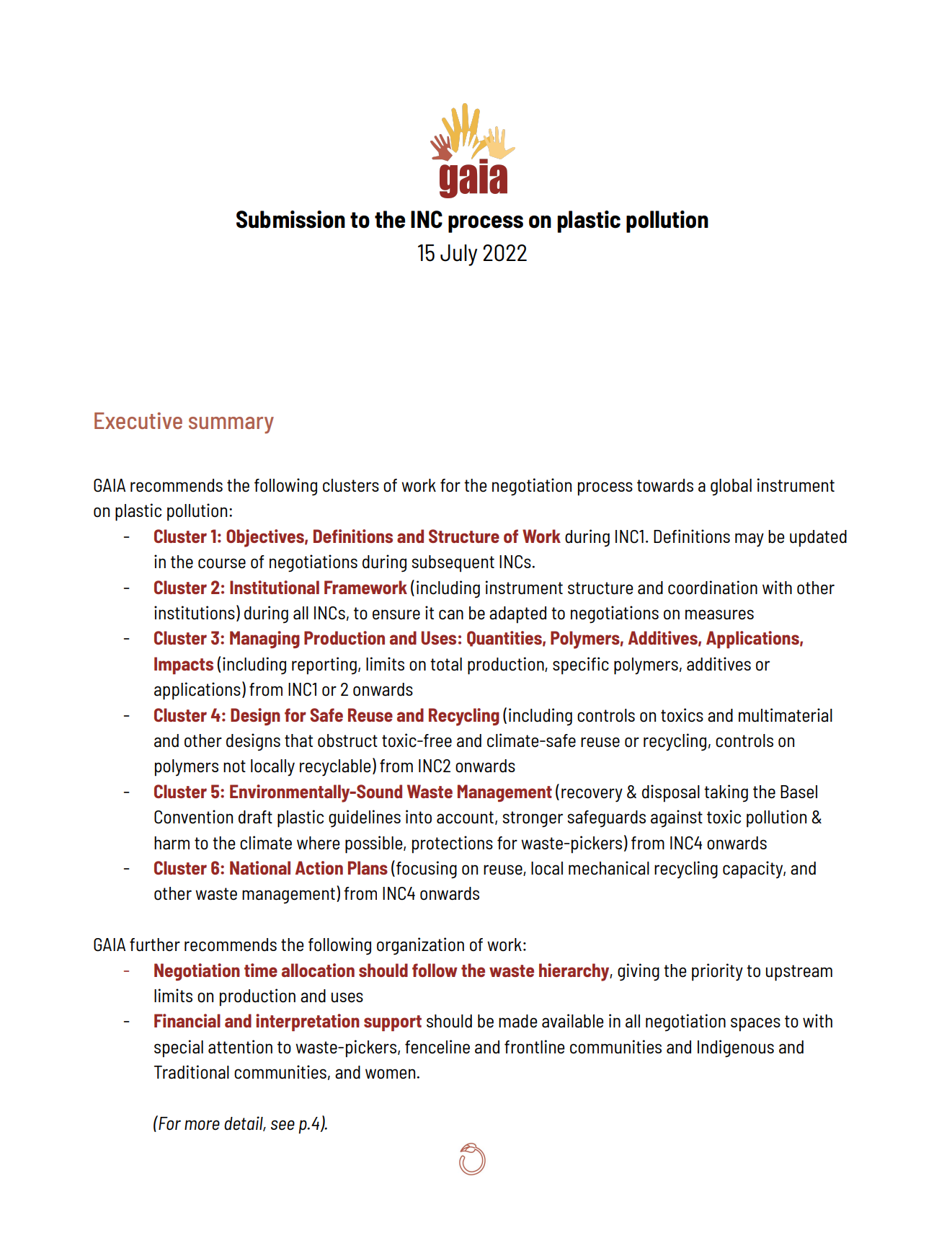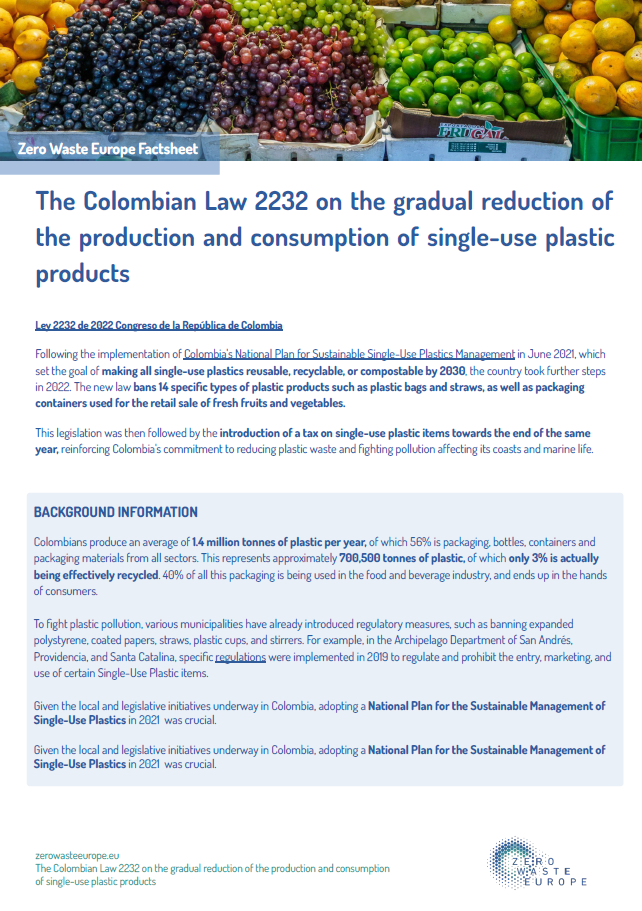
In 2022, Colombia took further steps to strengthen the implementation of its National Plan for Sustainable Single-Use Plastics Management. The country has set the goal of making all single-use plastics reusable, recyclable, or compostable by 2030.
As part of our activities for the 2023 European Week of Waste Reduction, this factsheet analyses Colombia’s Law 2232 on the gradual reduction of the production and consumption of single-use plastic products. The new law bans 14 specific types of plastic products such as plastic bags and straws, as well as packaging containers used for the retail sale of fresh fruits and vegetables.
Available in English.
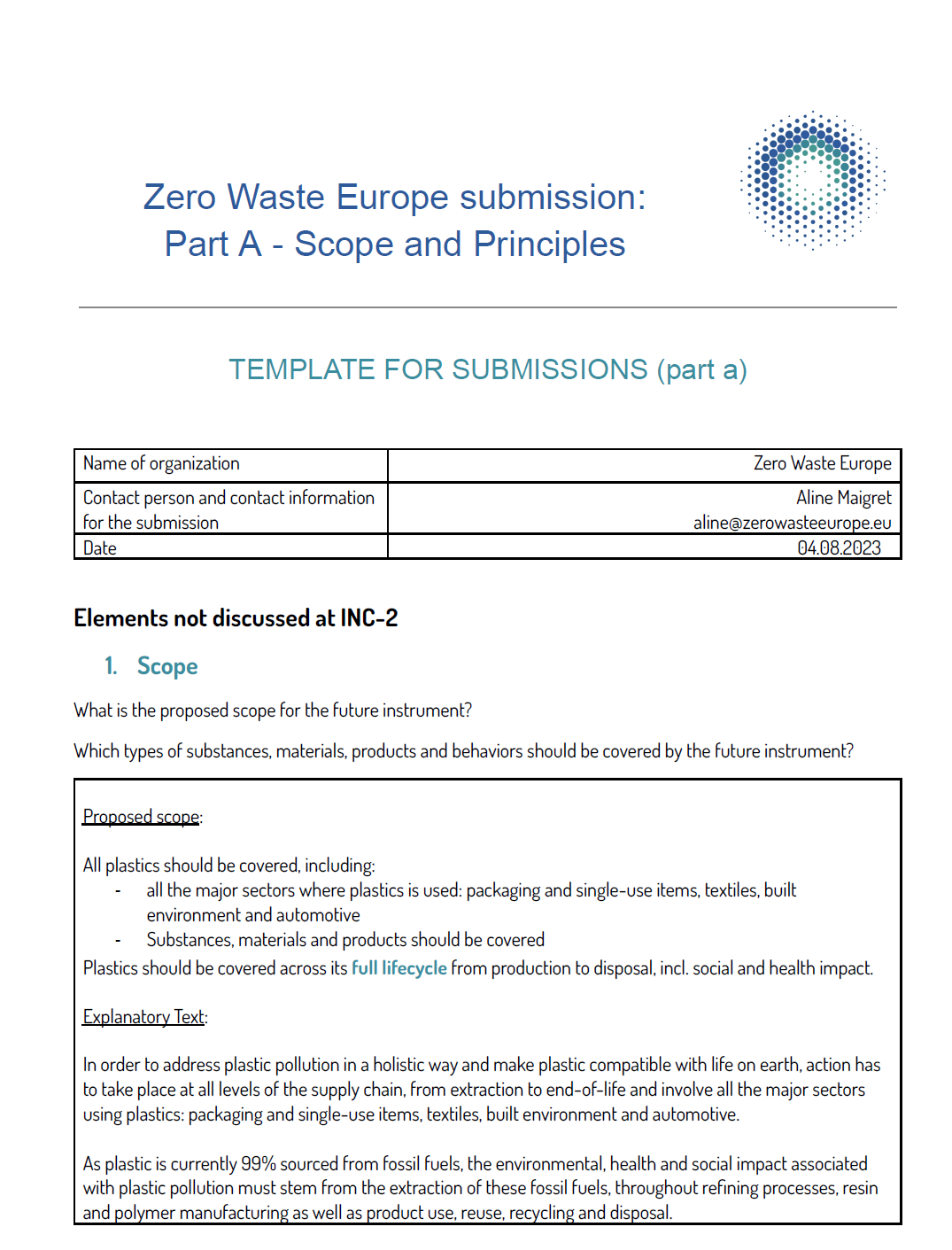
Zero Waste Europe has been working on policies and measures targeting plastic pollution since the early 2000s, has done extensive research, movement building, and policy advocacy, and has implemented zero waste solutions since then.
This document contains our submission to the third Intergovernmental Negotiating Committee (INC-3) to develop an international legally binding instrument on plastic pollution.
Available in English.
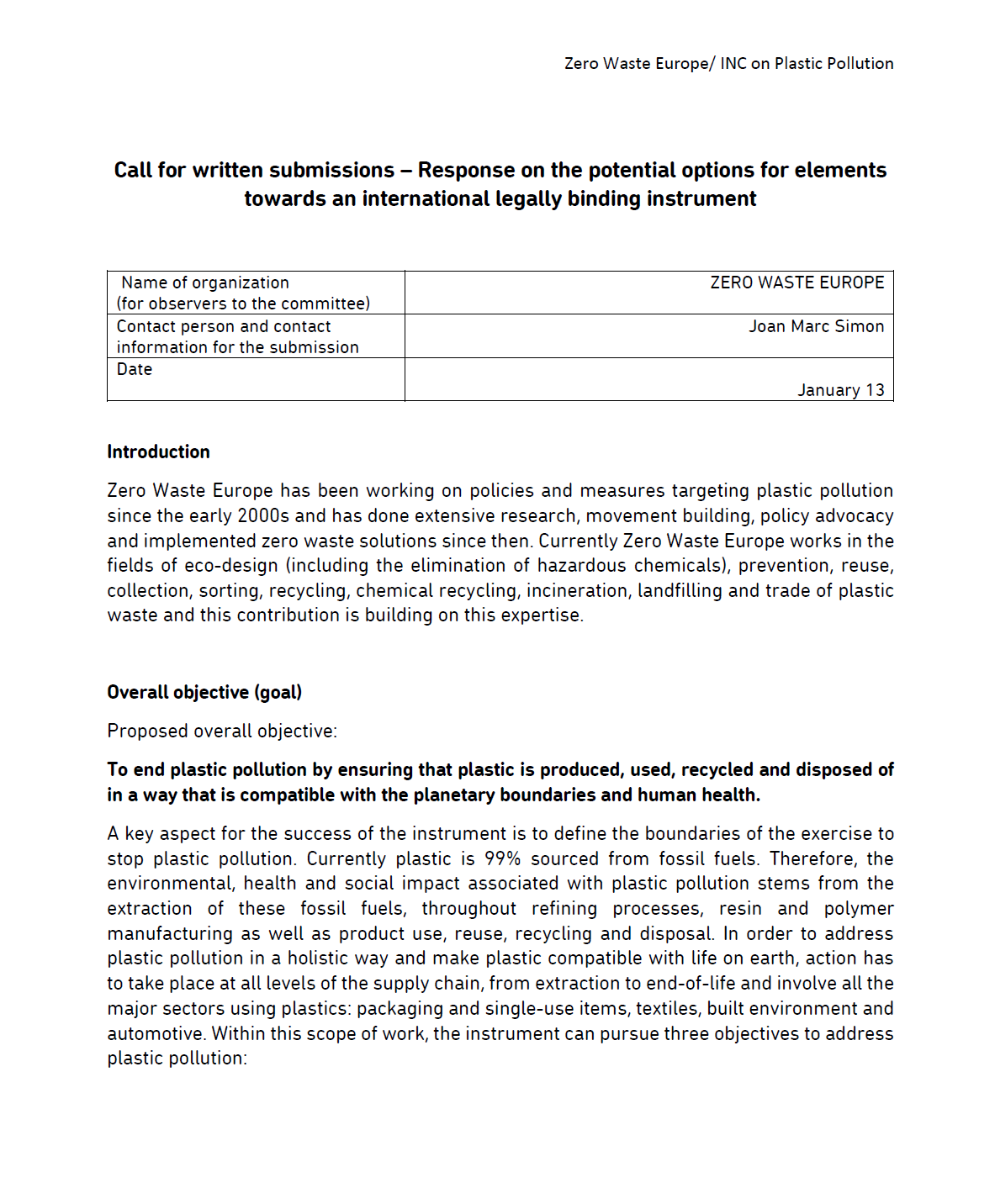
Zero Waste Europe has been working on policies and measures targeting plastic pollution since the early 2000s, has done extensive research, movement building, and policy advocacy, and has implemented zero waste solutions since then.
This document contains our submission to the second Intergovernmental Negotiating Committee (INC-2) to develop an international legally binding instrument on plastic pollution.
Available in English.
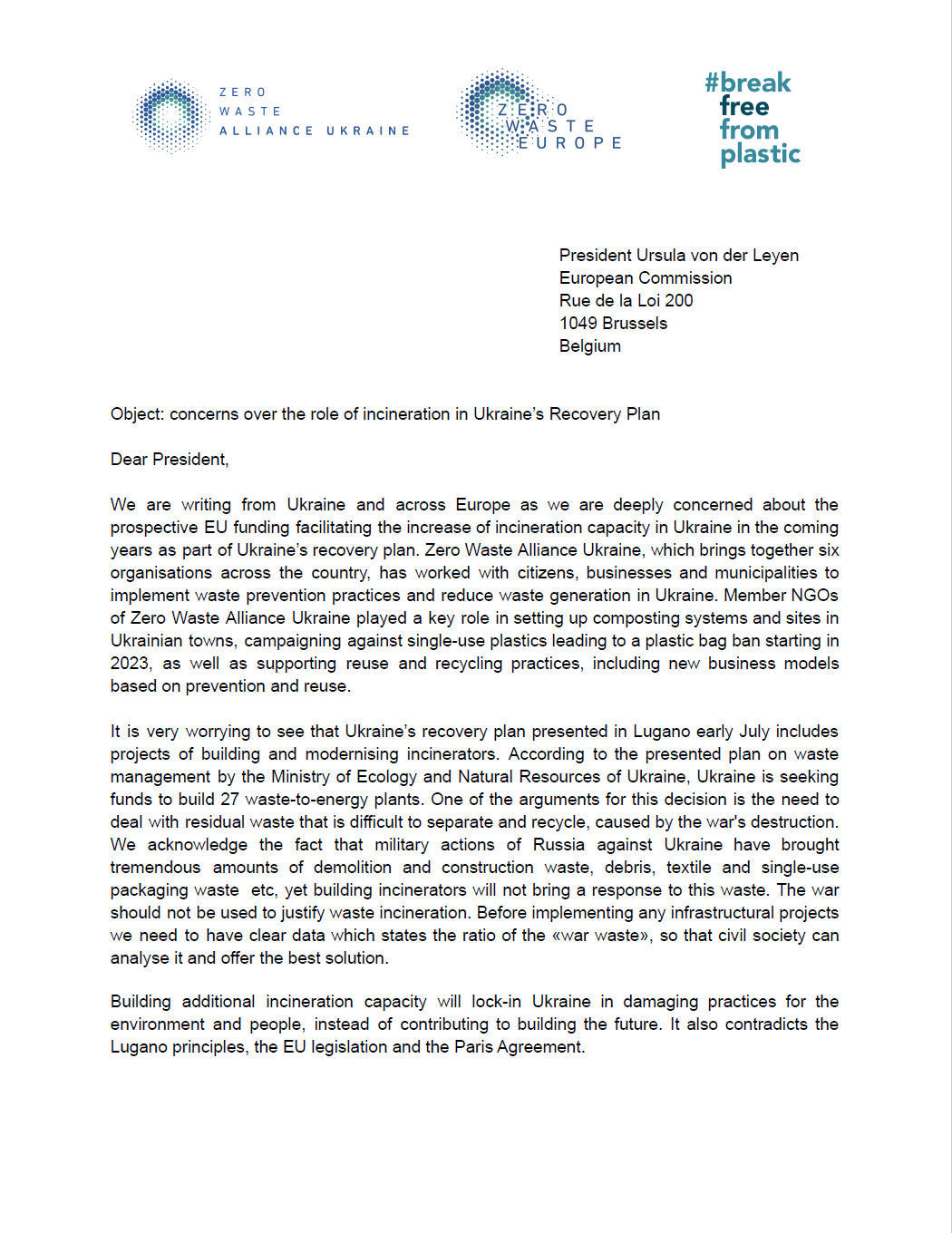
Zero Waste Europe (ZWE), Zero Waste Alliance Ukraine (ZWAU) and Break Free From Plastic (BFFP) sent a letter to the President of the European Commission concerning the role of incineration in Ukraine’s Recovery Plan. The letter puts forward a number of concerns related to the prospective EU funding facilitating the increase of incineration capacity in Ukraine as part of the country’s recovery plan.
Available in English.
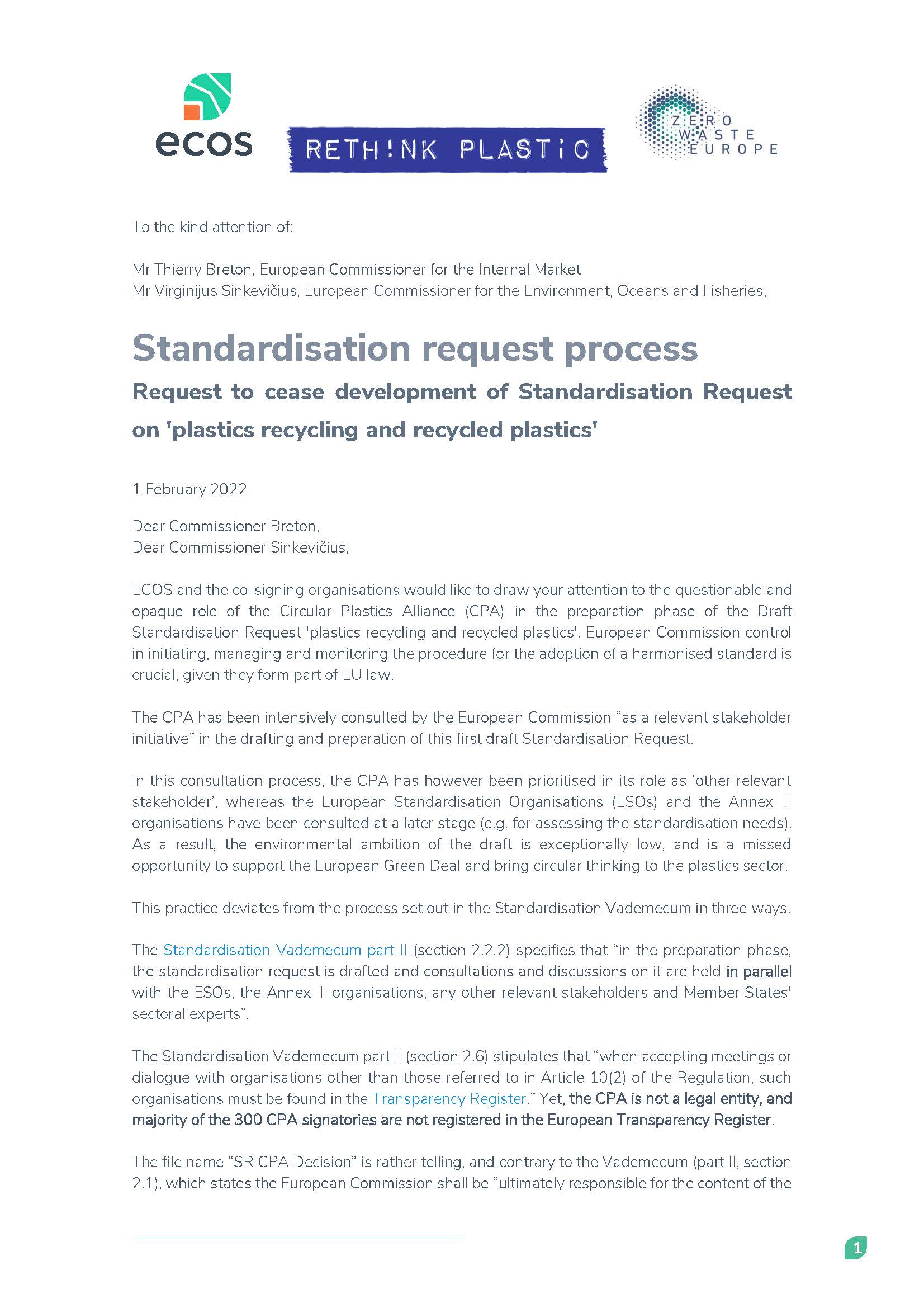
In a letter sent to the European Commission, ECOS, Zero Waste Europe, and the Rethink Plastic alliance ask EU Commissioners Thierry Breton and Virginijus Sinkevicius to stop the development of a Standardisation Request on ‘plastics recycling and recycled plastics’. This is the first stage for new standards on the matter.

Zero Waste Europe joined the European Environmental Bureau (EEB) and 12 other organisations to request a restriction on all forms of lead-contained in PVC by setting equal-stringent thresholds for lead in virgin and recycled PVC.
Available in English.
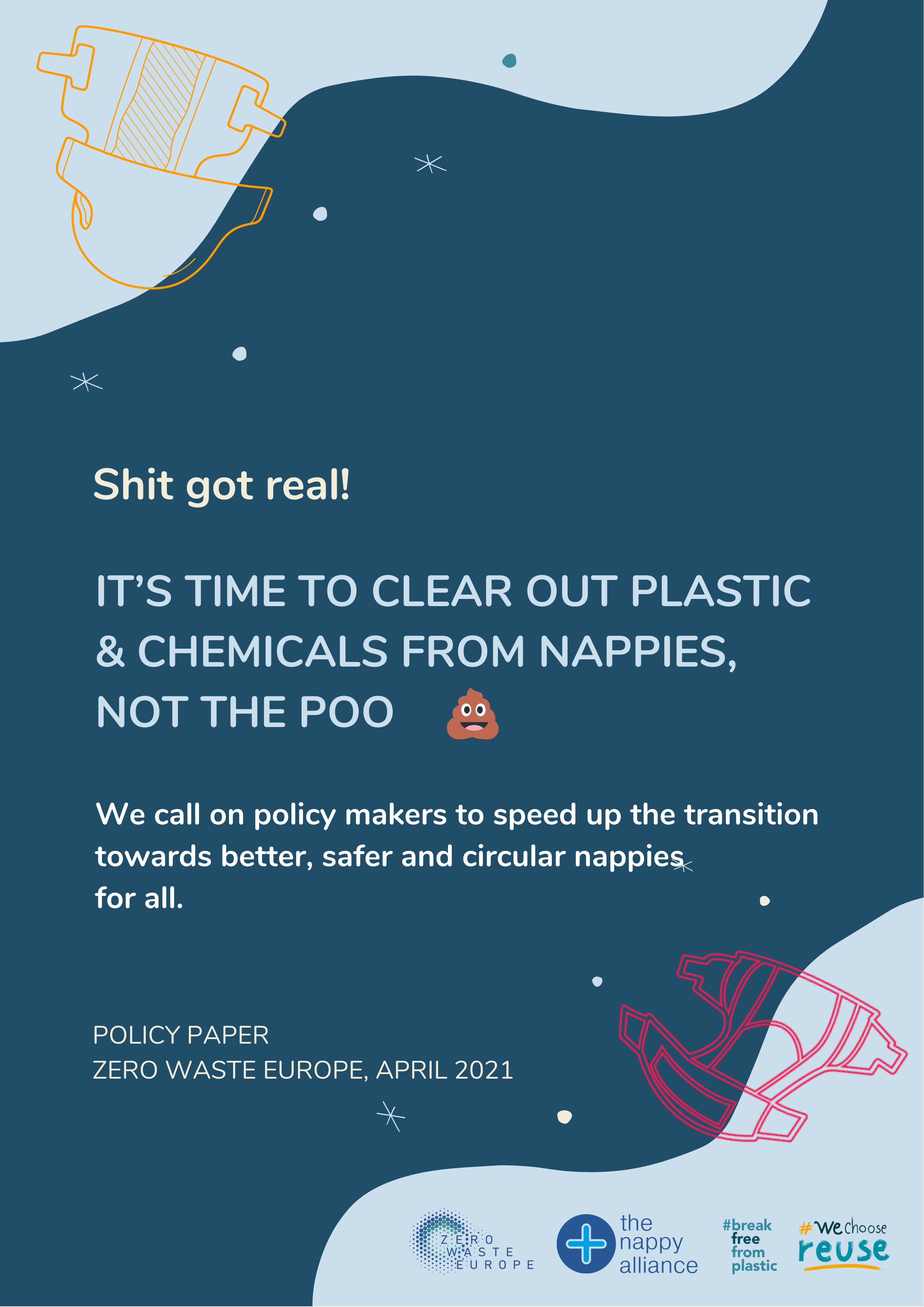
In the context of #ReusableNappyWeek 2021, we throw the spotlight on baby nappies by exposing the impacts related to the production and consumption of conventional single-use baby nappies; showcasing the reusable solutions and their benefits; and demanding policy change at the European, national and local level.
Available in English
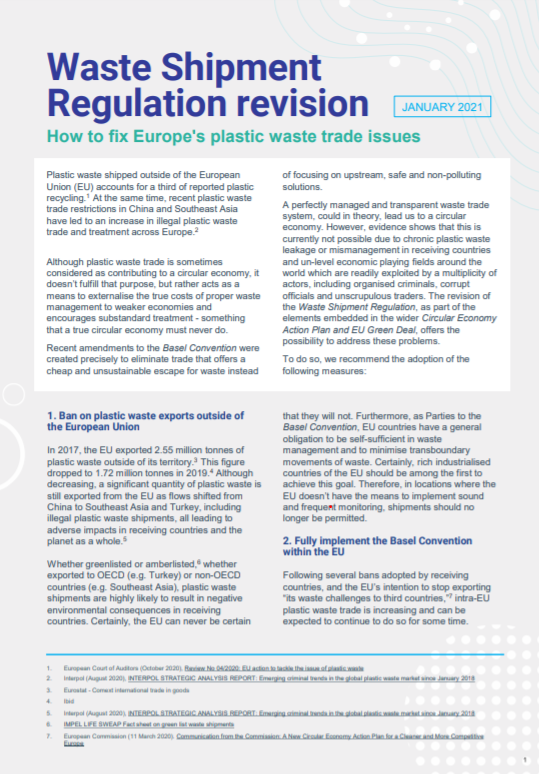
One third of reported plastic packaging recycling is actually shipped outside of the European Union! Exporting waste externalises the problem, placing the burden on other countries. The revision of the Waste Shipment Regulation offers an opportunity for change! Read our recommendations.
Available in English.
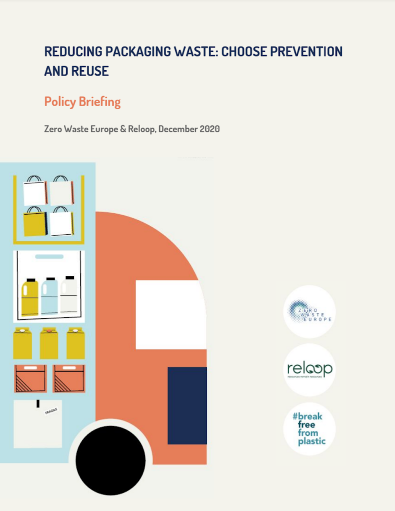
Together with the University of Utrecht and Reloop we released a report highlighting that reusable packaging produces far fewer carbon emissions than their single-use counterparts. Read our policy recommendations to reduce packaging waste and to build efficiently reusable systems.
Available in English
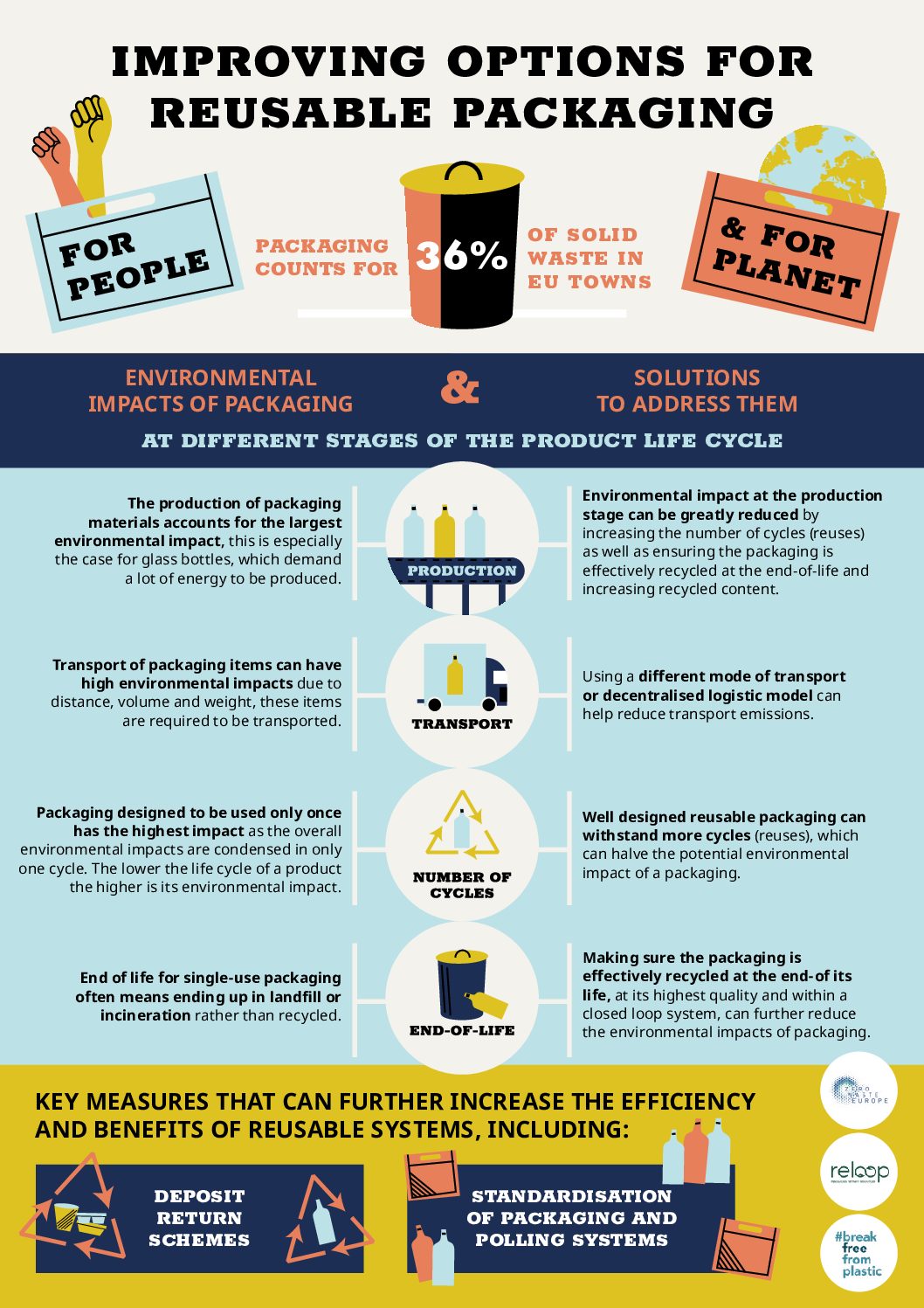
Together with the University of Utrecht and Reloop we released a report highlighting that reusable packaging produces far fewer carbon emissions than their single-use counterparts. Read the report’s key findings in our infographic.
Available in English & Hungarian

Together with the University of Utrecht and Reloop we released a report highlighting that reusable packaging produces far fewer carbon emissions than their single-use counterparts. Download the executive summary and read the report at bit.ly/reusable-packaging
Available in English
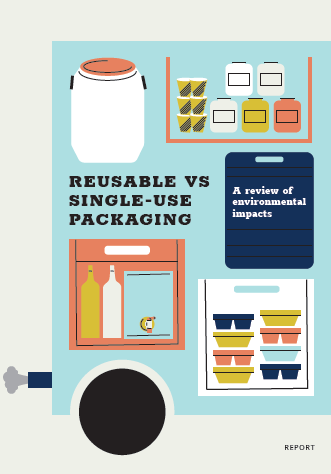
Together with the University of Utrecht and Reloop we released a report highlighting that reusable packaging – such as bottles, crates, jars, and others – produces far fewer carbon emissions than their single-use counterparts.
Available in English
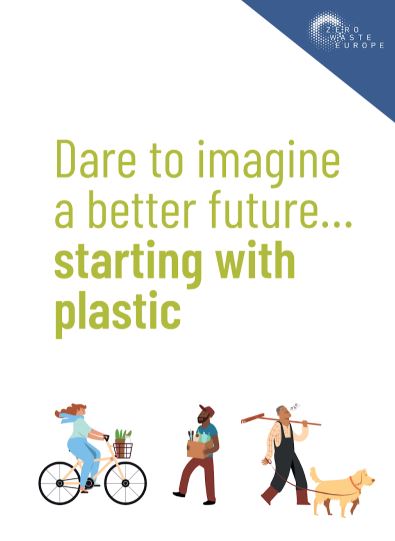
Thanks to the words of our Executive Director, Joan Marc Simon – who recently wrote the book “It’s Plastic, Stupid!” – Zero Waste Europe released a booklet which takes you “ back to the future”, describing our world in 2040. A world where circularity is fully implemented and zero waste is a reality.
Available in English
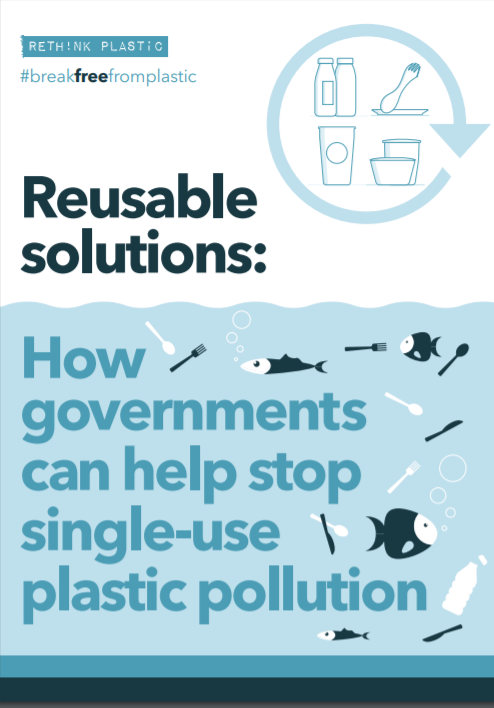
Rethink Plastic alliance report detailing reusable solutions to help governments put a stop to single-use plastic pollution.
Available in English
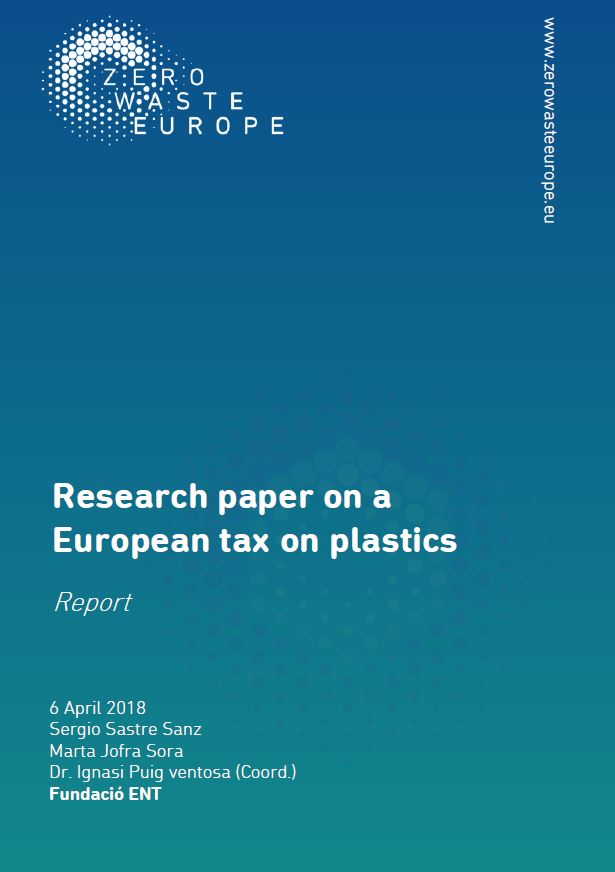
Environmental taxes are economic instruments aimed at affecting behaviour of industries, consumers, and resource managers through market systems. They can be combined with other market-based instruments such as subsidies, deposit-refund systems, resource pricing schemes or with other types of instruments, such as voluntary agreements or traditional command and control measures.
Download the full research paper to find out more.
Available in English
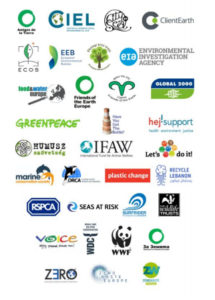
Alongside Rethink Plastic & #breakfreefromplastic, we called on the European Parliament to be at the vanguard of tackling plastic pollution and vote to close the tap of single-use plastic. Read our joint letter!
Available in: English
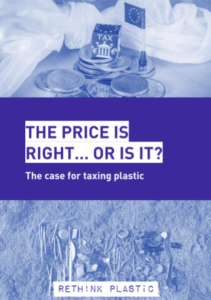
An ambitious set of taxes designed to influence both producer and consumer behaviour can help Europe curb plastic pollution by encouraging both plastic reduction and greater recycling. ZWE & the Rethink Plastic alliance make the case for taxing plastics.
Available in English.



